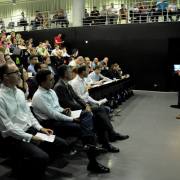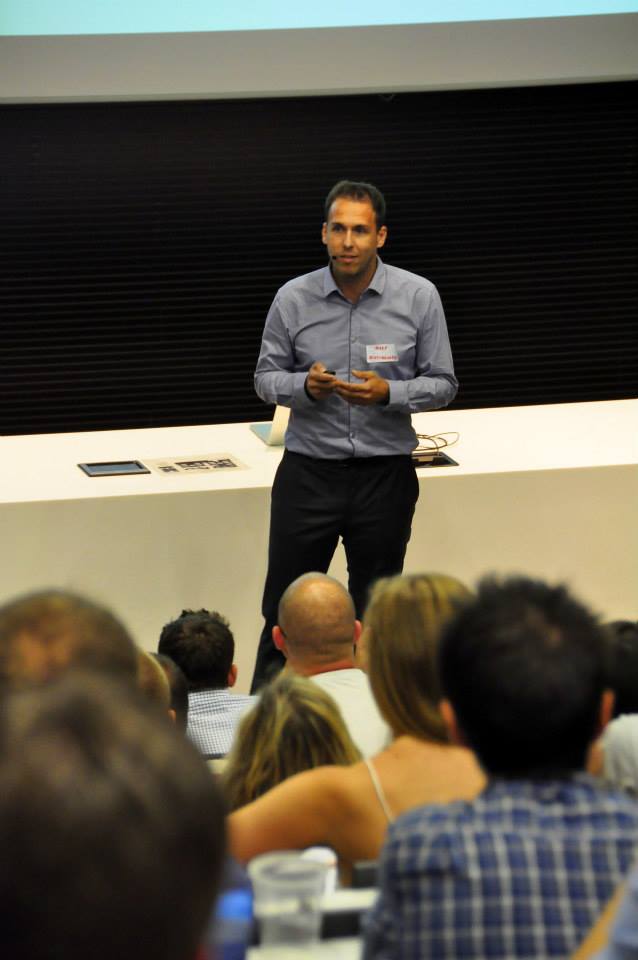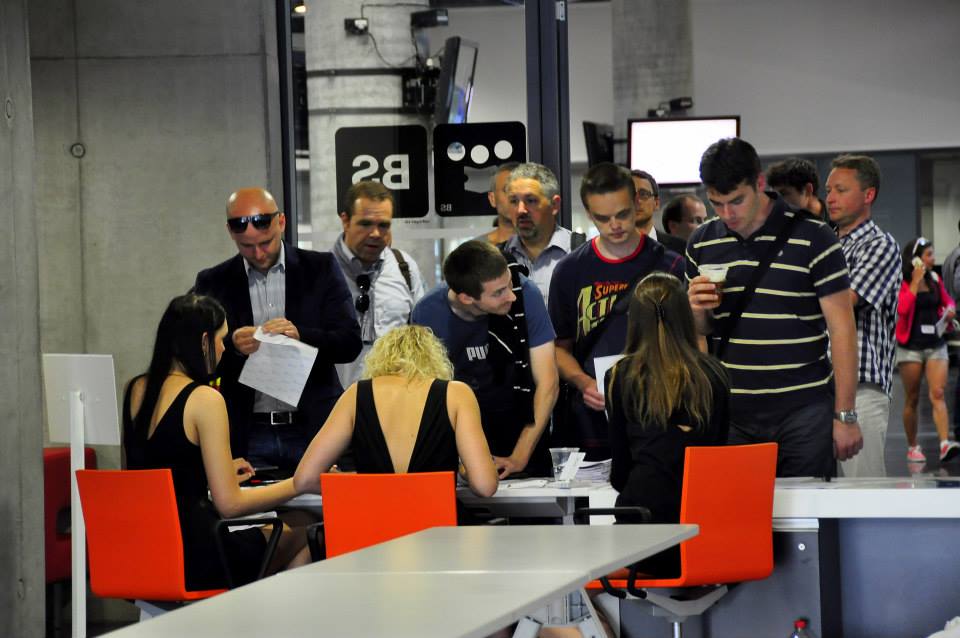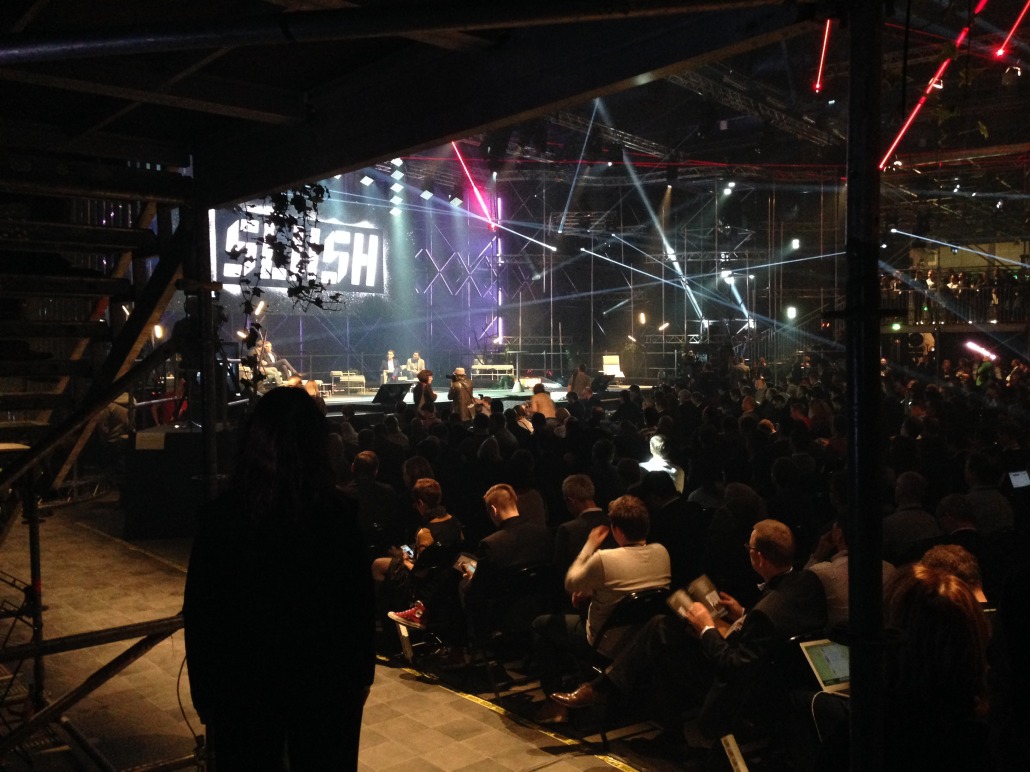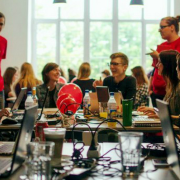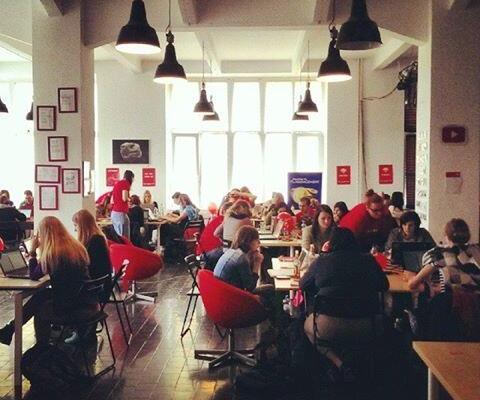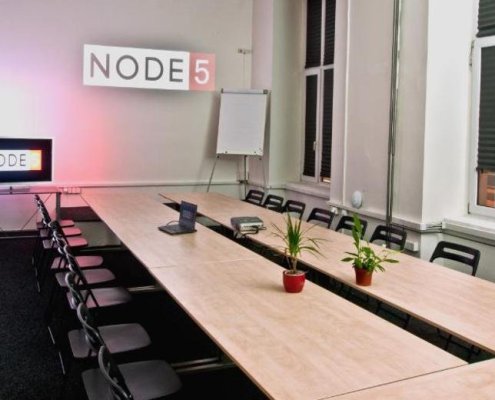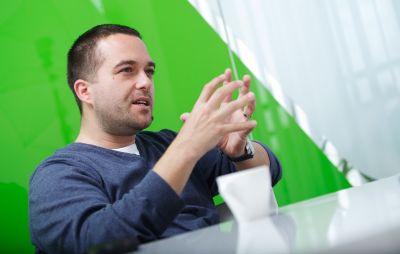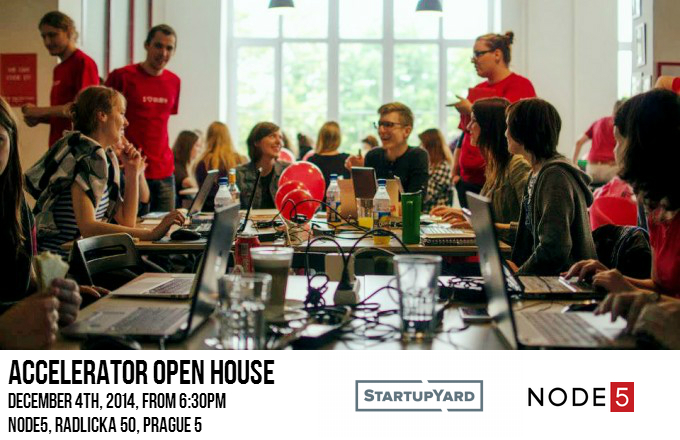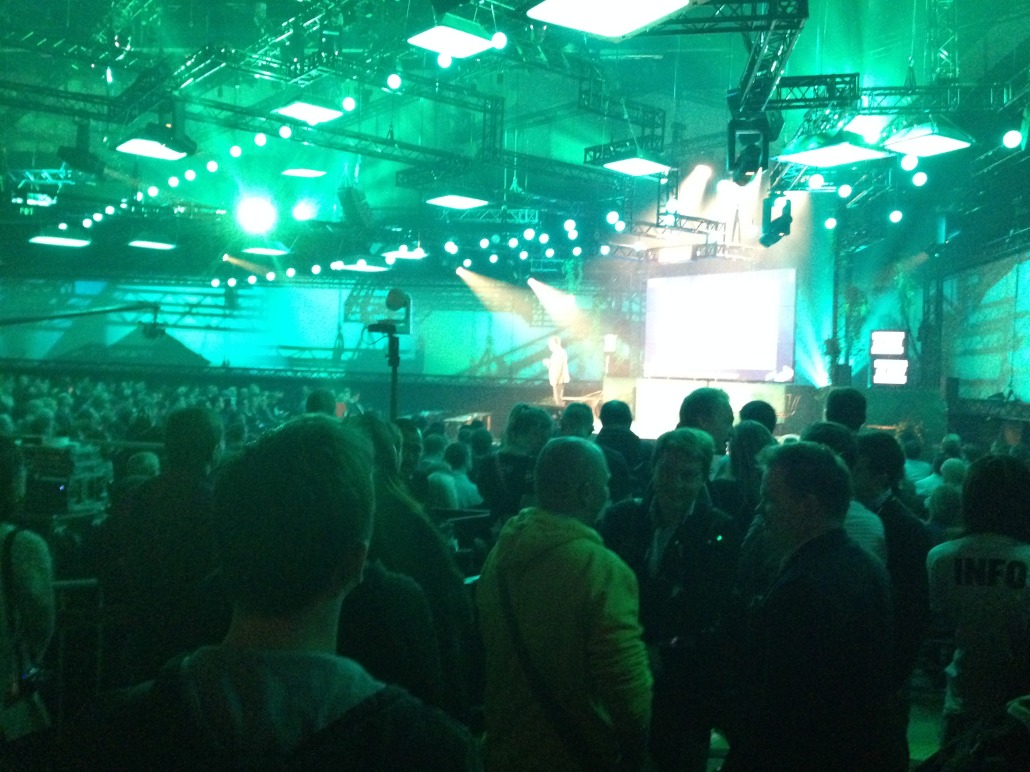We caught up with Mergim Cahani this week to talk about the beta launch of Gjirafa.com, the Albanian Language Search and News Aggregator that is making a name for itself in Albania And Kosovo. Cahani took part with his core team in our last accelerator round, and raised substantial angel investments for the venture, which launched in October of this year with a public beta.

CEO and Founder of Gjirafa.com, Mergim Cahani
Mergim! A lot has happened since Gjirafa left StartupYard 5 months ago. What’s the latest news?
Yes, we’ve been quite busy. After leaving StartupYard, we launched our private beta by user invitation only. This has really helped us to fine-tune the Gjirafa engine, and allowed us to really tackle the UX perspective and the search quality. We’ve indexed over 20 millions of pages in Albanian so far. Our staff has grown to 18, which is fantastic, because we have all the talent we need, and much sooner than I thought we would be able to find it all. That’s really exciting in itself. We get to follow our potential, just as quickly as we can. A strong group is really essential to that effort.
Finally, on October 9th, we launched the public beta. We just had a one month birthday. We are really excited. The product is full-featured, it’s public, and we’re seeing some amazing numbers. I can’t wait to tell you about it!
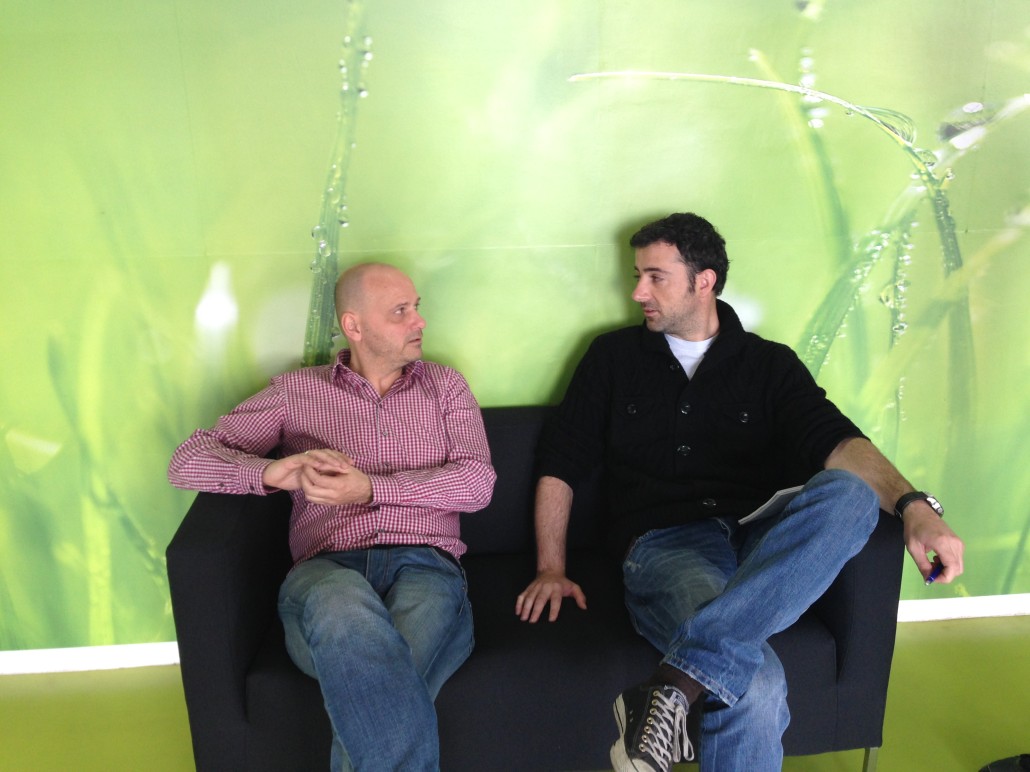
left: Cedric Maloux, Director Startup Yard. Right: Mergim Cahani, Founder CEO, Gjirafa
What features did you launch with?
There is the core product, which is search in the Albanian language and English, news aggregation, and bus schedules. We have over 3500 Albanian language articles per day aggregated, and we have amazing user statistics, but it’s too early to share those. It hasn’t even been a month! The bus scheduler is also a core product, and we’ve added 8,000 lines in the region, covering big cities to tiny villages, making our site the only place where this information is available online. That has really engaged people, which is what we wanted to do: give Kosovars and Albanians the rich web experience that others in Europe just take for granted.
But beyond that, we’ve brought in a couple of features we didn’t expect to have so soon, because user feedback in the private beta was so strong. This includes a weather widget with weather in 320 cities, and a searchable used-car database which is really popular.
How are the features being received?
What we’re finding is that there is a huge hidden demand for all these verticals. We just launched this car-search service on Monday, and already we’re seeing enormous traffic. Our CTR for Facebook ads is also tremendous. Have you ever heard of a 10% CTR? That’s what we’re seeing right now for Gjirafa.
The news aggregator has also been doing really well, particularly our algorithm based “Daily Top 3,” which we’ve proven can consistently determine the most important news of the day on the Albanian web.

Pristina: Capital of Kosovo and home of Gjirafa.
We’re beginning to develop the Gjirafa name. We want to be known as a product made for and by the Albanian community. So we see our whole user community as part of the effort, and we’re going to be listening to them very closely to see what they need and what they want from us. People are really speaking up and letting us know that they support this effort, and they want us to succeed. It’s been amazing.
So the reaction in the Albanian language community has been good? What do they like about it? What do they ask for?
The first thing they like about it is that it’s their language, and that it’s an Albanian/Kosovar company. They’re really proud of that fact, and they think it’s past due, frankly. They feel that Gjirafa is theirs and they identify themselves with it – and that’s exactly what we want. We are for Albanians, and the reaction has been really strong.
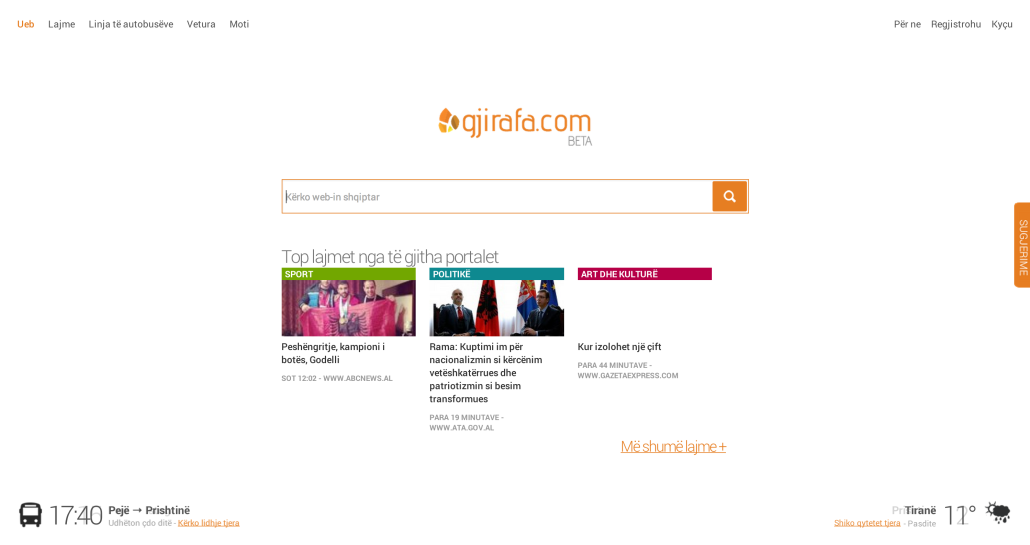
The Gjirafa Search Service
I’ll give you a great example: One of our users contacted us the other day, and wrote “I’m checking this bus schedule, and I can see this line from city A to city B, but there must be a mistake here, because you’re missing two stops on the way.” We checked and he was right, so we wrote him back to let him know we’d fixed it. He turned around and posted our email on instagram and proudly declared that he had fixed the problem, and made the information available to the people. He was putting himself, sort of, on our team. Which I think is right- he is part of the effort.
People are even calling me on my mobile and ask me about this and that line, and about how the site works! People create videos on how to use Gjirafa and put them on Youtube. We don’t ask them to do this- they just do it. We receive resumes daily, and people want to volunteer to help us for no pay. Comments on articles about Gjirafa encourage people to use the product patriotically. People are saying: “You have to use this, and help make this work, because it is our thing.” That’s so heartwarming for us. It’s amazing.
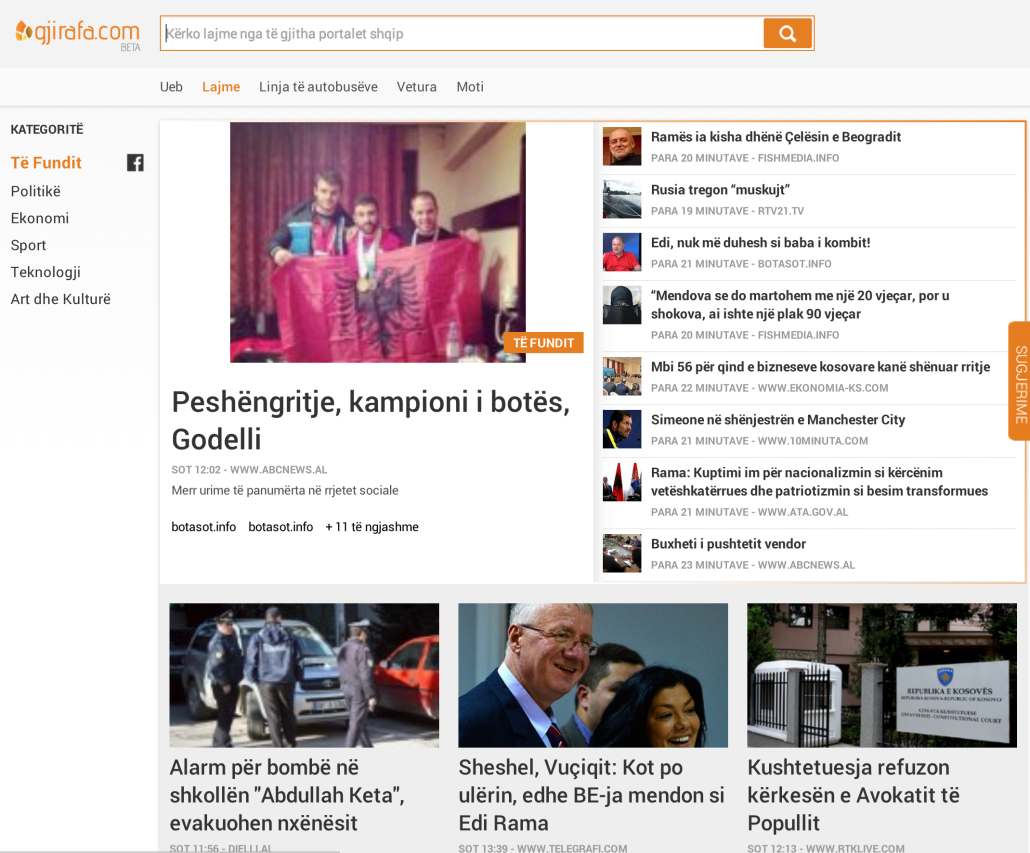
The Gjirafa News Aggregator
And it isn’t just people. Other companies in the region have also reached out, and let us know that they are on our team as well, and rooting for us. That’s so great.
How has your impact in Albania/Kosovo met with your expectations? Is this where you thought you’d be a year ago?
In some ways yes, in others not at all. We expected to have good traffic, but for the first month after the public launch, we’re on track to double our goals for total traffic.
And we never thought we would have such interest in vertical searches like cars- that was a big surprise.
Also, I didn’t expect to have such an all around well-rounded team. I thought we’d be missing a few key parts, or not be able to afford to hire the right people. But everything is now covered in terms of staff.
People really engaged more than we expected. Our research showed that 30% of visits would be mobile. But over 50% are now mobile. That changed our focus and direction. Prioritizing of new features was greatly affected by that. It is becoming a much more mobile market, and we have to focus on that. 3G is just coming to this region -I know, it’s so late!- so our services are more relevant than they’ve ever been. 4G is coming soon, so we have to be ready for that.
Where is the development of the site so far? What do you need to improve on, and what seems to be working well so far?
The development supports all the launch features. Fully mobile responsive. What we need to improve is our ranking algorithm. We have taken several items into consideration in ranking general search results, and now we are adding around 20 factors to take into account with ranking. Ercan for instance, the co-founder and the CTO, is working on Data Science of the Albanian Web, and this will have a big impact on improving the search results. This new ranked search will be available by the end of this month.
The general search often provides fantastic results- often better than Google in the albanian language, but sometimes it fails to provide useful results, so we’ve experienced a learning curve. We have identified those issues. Google probably uses over 200 factors in ranked search, and Seznam probably uses nearly 100. We “only” use 20 now, but you have to remember that Google has more to worry about in providing a personalized search. They have to worry about user history, location, language, and a much bigger base of data. We only focus on websites, and the content on those sites so far. It’s a smaller web, so we are starting with the brass tacks. That allows us to actually beat Google on speed, at 250 ms response times on average. We’re very happy with that figure, and it improves when many searches are occurring at the same time, so the more our index is used, the better it will be.
How did the StartupYard shape your trajectory over the last year?
I see everything that’s happened so far as ingredients in a recipe that got Gjirafa this far (although not there yet). They are: the market (our users), the team and the technology, and the support we received; starting and leading from angels and other supporters.
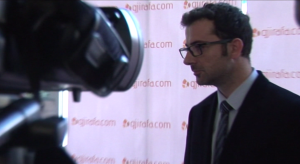
Cahani at the Gjirafa Launch, October 2014
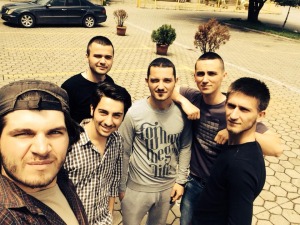
The Gjirafa Team
StartupYard, on the other hand, was the secret ingredient that made the recipe work and pushed everything forward. It is like a hydrogen bond, that keeps the water molecules together. The investors and the customers are the atoms, but the bonds make them chemicals and compounds- they make them *be* something. I sincerely believe it would have been very difficult, maybe impossible, to have brought Gjirafa to where it is today without Startupyard. Without StartupYard’s management team, mentors, and the experience it brought with it. I don’t know how we’d be here.
Just one example of what we got out of it: the bus schedule idea was born in Prague, at StartupYard. It was that kind of insight into: “ok… you have a country full of customers… how do you reach them?” that StartupYard gave us. It made us believe that what we were doing was possible, and showed us the way forward.
And StartupYard was our access to angel investors, Microsoft BizSpark Plus, and the partnership with Seznam.cz, and the list goes on and on. Simply put, without StartupYard we would not be where we are today – we would be somewhere of course, but we would not be one of the fastest growing platforms in the Albanian web, that is for sure.
Has Google taken an interest in your activities so far? Any menacing phone calls or mysterious packages?
:Laughes: No… not directly, no. But it’s interesting, because Google does deep crawl us quite a bit, and they use interesting keywords when crawling us. We have over 6000 pages crawled, and they use random words like “barbie,” and then they index the pages, then move on to the next term – we’re not exactly sure what they’re doing. They seem to be figuring out how big we are- seeing how many pages we index. They definitely know we’re here, let’s put it that way.
You managed to hit your goals for an Angel investment round after leaving StartupYard. Are you still looking for more investment?
The most important thing for us right now, is to hit our targets, and surpass them. We’re doing that now, and the more data we collect on our user base, the better position we’ll be in to understand our own value in this market, and our future potential. That real, hard user data is going to give us a picture of our value, and allow us to show that we have traction.
I’m so grateful to the angel investors who took a shot on us this year. They’ve given us the space and time to do Gjirafa right, and we’re focused on making this a great product, with a great market potential. The more space we have to do that, the better position we’ll be in when it comes time for looking to new investments. But without them, we wouldn’t be here discussing Gjirafa.
You’ve had some communication from Microsoft as well, is that right? What’s that all about?
Yes! This was very interesting for us. We have been in contact with the Azure team from Microsoft, primarily. We have a lot of servers with Microsoft, and that intrigued them. They wanted to know: “What is going on in Kosovo? What are you doing with our servers?”. They met us, and invited us to be Microsoft Azure Advisors, which provides us access to benefits like directly communicating with the Microsoft Azure team, and the ability to give detailed feedback and input on azure products that we need. If we see that we need something new from Azure, we can shape the development of new products to meet our needs directly with Azure. That’s been great for us.
You launched Gjirafa officially at a big press event last month in Kosovo. Tell us about that.
It was a really exciting day. Firstly for the team, because we saw this is a day for us. We’d gotten “the beast” Gjirafa, to the point where it was ready to be seen by the world! In addition to the marketing perspective, we saw it as a moment to be proud of our accomplishments so far. The organization of it was excellent, where the co-founder and the COO, Diogjen Elshani, with the help of the team, was able to make sure everything was going smoothly – from the invitations, the live stream and everything in between.
The event was really unique for Kosovo. For a startup in Kosovo, it was really remarkable. It made just about every TV channel, and I was doing live interviews all day on various TVs. A special was done by one channel, and we had a 7 minute exclusive on a high rated network, and we had the #1 news channel dedicate 20 minutes about Gjirafa, which was replayed for a full week. We were all over TV that week, and from that perspective, it was a huge success in getting the word out about our efforts.
Some important people also came to the press event. Diplomats and politicians were present, and some local celebrities as well. It was a really big deal, and an amazing day for the team. We really followed the launches that occur in Silicon Valley, and modeled it after things like Apple keynotes. We tried to make it exciting and not too corporate. Stay conceptual, you know? Talk about big ideas, but in basic terms. It really caught the public attention here.
Where do you hope to be with Gjirafa in one year? What services do you plan for the near future?
We’re gonna have several vertical searches, including cars, real estate, specific products like phones, job opportunities, and we’ll include product comparisons between sites. We’ll double the reach of our index, and we’ll have over 50 million pages available through Gjirafa. We’re also going to launch an app for iOS/Android, and that will better be able to serve the Mobile market, which is becoming dominant here.
Potentially, we are looking at a few other things like an academic search vertical, and a vertical on public government documents- business incorporation, laws, and public records.
Thanks Mergim, is that anything else you’d like to add?
I have a story I want to tell you! It’s a good one, I promise.
So we have somebody on the team in the role of “information coordinator.” This basically means that he actually physically has to go to bus stops and make sure that our database is correct, and that the bus schedules haven’t been changed. The Albanian government doesn’t have this information online.
One time a few weeks ago, and I swear this is true, he was doing this in a really small village, with just a couple of people in it. He walked past a couple of middle-aged people, and asked for information regarding bus station and bus schedule. “Where are you going?,” they ask him. “I’m just checking the schedule,” he says. “Oh,” says one of them, “You don’t have to do that anymore you know, there’s this thing called Gjirafa, and it has it all.” It made me laugh when I heard that one. He *is* Gjirafa, but people are already taking this service for granted. And that’s just fantastic. In my opinion, if the people treat this like something they deserve, then they will make sure that we deliver what they need from us. And that expectation is exactly what we thrive on.

